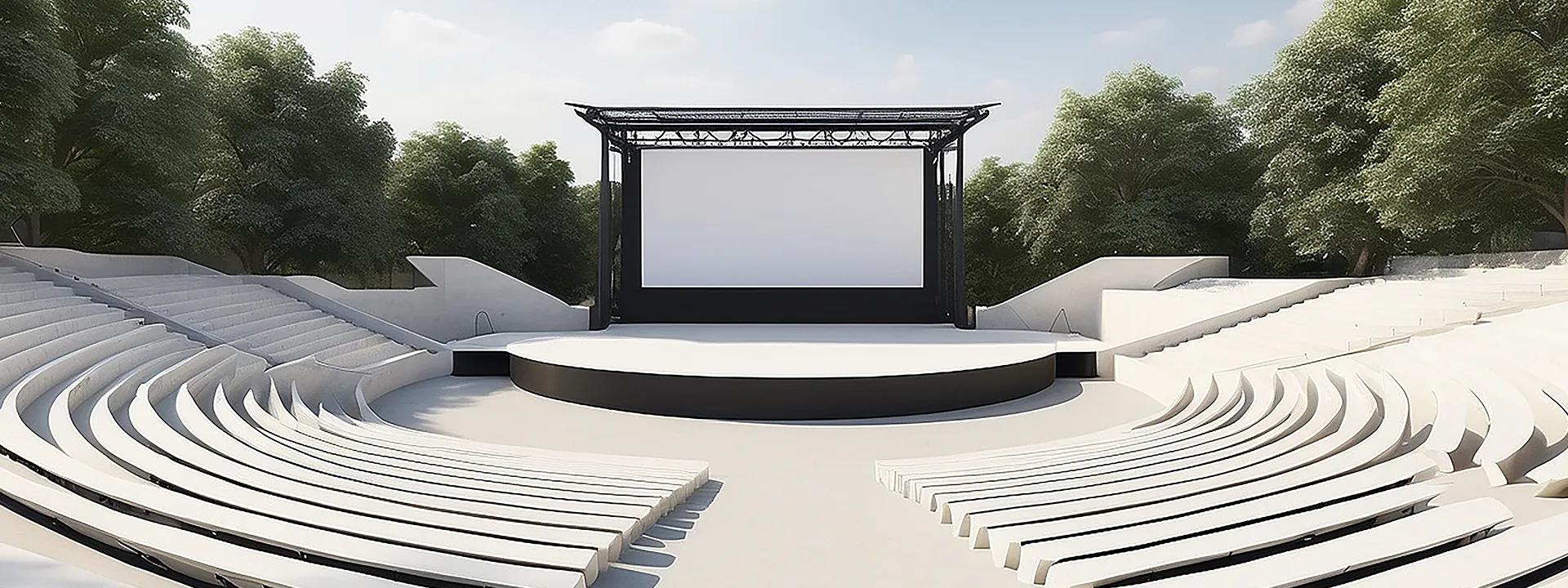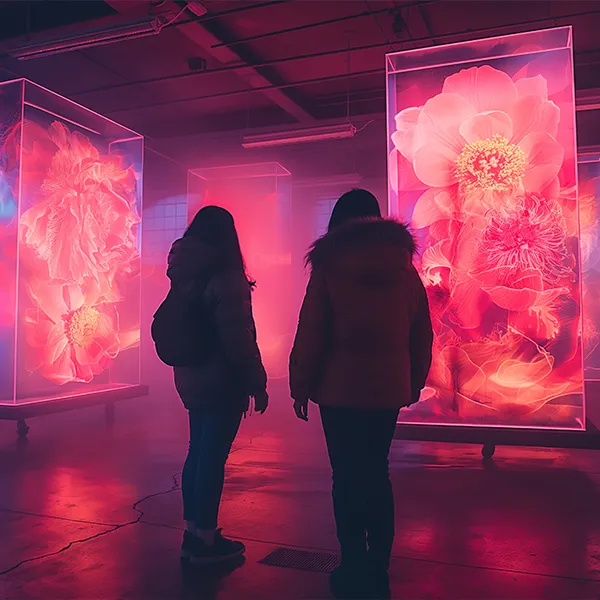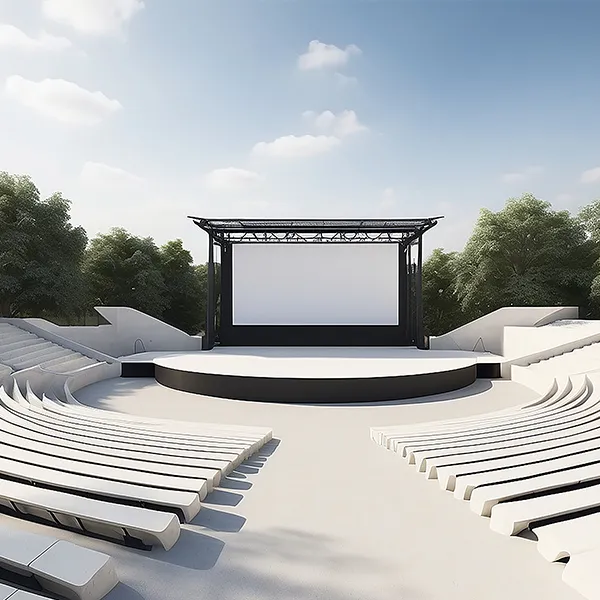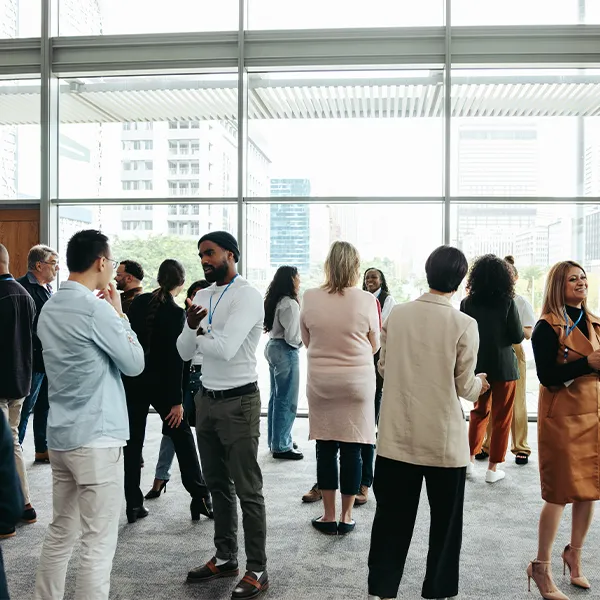All the World's a Stage: Why Venue Matters More Than You Think
When it comes to planning events, the venue isn't just a backdrop but a key player in shaping the overall experience.
Discovering Beauty in Unconventional Spaces
When it comes to venues, the event planner designs and manages every detail of the venue, creatively transforming the open space into a special place that captivates and engages the audience. Here's what he shared about the importance of venue selection and how thinking outside the box can lead to unforgettable experiences.
"The key is seeing beyond what's there and envisioning what could be there," Julian Roberts, Event Director, CPI Business, said opening our discussion. Sharing insights from some of the most unusual venues he's worked with, like transforming a majlis for Ramadan - hosting 200-300 guests daily for an entire month.
“But logistics like deciding where to place generators for power supply, or ensuring smooth guest access, or even coordinating parking can't be overlooked for a seamless experience in this case, “ he added.
Hence, it's safe to say, setting a venue is as much about design as it is about logistics. Every detail matters when it comes to creating an inviting and memorable experience for attendees.
Aligning Venues with Event Specifications
The significance of context in venue selection is paramount. For a conference, the choice must consider factors like the number of attendees and the nature of the event—be it an opening ceremony or a gala dinner. “When advising clients, I offer three options: an upscale choice, a mid-range option, and a budget-friendly alternative,” he said.
The pricier one usually has more flexibility. For instance, high-end hotels usually provide ballrooms that can be partitioned for smaller gatherings if you have different events happening simultaneously or have multiple packs of people.
Offering clients with different venue options is always a good call. It gives clients more control over their budget while ensuring that the venue can adapt to their needs. It's about giving them choices but making sure each option delivers.
Navigating the Exhibition Landscape
Finding suitable venues for exhibitions can be challenging due to limited availability, particularly for exhibitions in popular convention centres. Julian pointed out the need for proactive planning in this case. “You must book early and often put down a deposit to lock down the space,” he emphasised.
In addition to convention centres, artists and businesses are exploring outdoor exhibition spaces where temporary structures can be set up. "While constructing temporary setups like tents can be costly, if the budget permits, it offers a distinctive experience for visitors," Julian added. However, seasonal weather conditions must be considered, making contingency plans for rain or intense heat is essential.
Planning Concerts with Care
Another layer of complexity comes with concerts, as the scale depends on the artist's popularity and the venue's capacity. For large-scale events by world renowned artists, we typically select large arenas that can accommodate tens of thousands of attendees. These venues offer expansive seating arrangements, state-of-the-art sound and lighting systems, and the necessary infrastructure to support large-scale productions, ensuring a seamless experience for both the artist and the audience.
For smaller performances, local venues such as Global Village are ideal. These spaces offer a more personalised atmosphere, providing a closer connection between the performers and the audience. With a smaller capacity, these venues allow for a more relaxed and engaging environment, perfect for niche artists or audiences seeking a more intimate experience.
Embracing Unconventional Locations
Organising events in unconventional locations, like restricted army areas or venues on the country's border, meets specific client requests and adds to the wow factor. “A hyped brand wanted an unseen, untouched location for their product launch,” he explained. “Budget played a significant role in these cases. For easy accessibility and reach, they were ready to fly in guests via helicopters too.”
However, he acknowledged that such arrangements are not feasible for everyone. The choice of venue often reflects the event's scale and objectives, whether it's a high-profile conference or a concert.
Location, Location… But Timing Matters Too
Location is important but timing also plays a critical role in enhancing or hampering the guest experience. “Take city events in the evening, for example,” Julian notes. “You can have the best location, but if it's rush hour, it's a nightmare because of traffic.” Venues in quieter areas allow guests to arrive stress-free despite peak hours. Similarly, an event can work well in the city's heart if held on a weekend or during off-peak hours. Balancing timing with location ensures each event's flow and accessibility are as ideal as the venue itself.
Contingencies and Costs
Events, as we know firsthand, are rarely set in stone. Unexpected twists can arise at the eleventh hour. As Julian put it, "We always have a contingency plan in place."
However, it's essential to recognise that while backup plans are vital, handling last-minute requests can lead to additional costs. For example, if a branding element needs to be adjusted at the venue, costs can escalate quickly. Some venues may be more accommodating than others, however, flexibility has its limits.
Innovating with Technology
The role of evolving technology in event planning and its integration on venues is important to enhance the experience. The team is always exploring the latest innovations, whether in visuals or audio, to enhance the experience. One recent example was a kinetic wall used in place of a traditional MC, creating a futuristic vibe that captivated the audience. “It was like a robotic host engaging with the crowd—panels moving in sync, bringing the event to life and everyone loved it,” Julian shared.
Even photography has taken on new heights where guests are handed a QR code upon arrival, which connects them to cameras capturing candid moments throughout the evening. This allows attendees to relive the experience without the need for posed photos.
Julian highlighted the “dome experience” that was conceptualised and created for ADFW 2023, which was one-of-a-kind in the UAE. This unique setup covered the entire ceiling with projected visuals, delivering an immersive environment likened to a planetarium.
Reflecting on the company's dedication to R&D, Julian added, “We're always exploring new technologies in sound, video, and interactive content. The bar keeps rising, so we aim to be two steps ahead—finding ways to do things differently, pioneering instead of following. If we're just keeping up, we're not pushing boundaries. That's why we strive to think outside the box and stay ahead of the curve.”
Behind the Scenes: Making It Look Easy
From staging the region's most prestigious events to hosting intimate gigs, each venue shapes the event's identity and experience.
Whether through immersive tech, strategic location, or anticipating the unexpected, choosing the right venue is about creating a cohesive space that enhances every moment. It is about finding a place, and selecting a location or building that feels intentional—where every logistical and creative choice supports the event's purpose and impact.









